Building Climate Resilience through Community
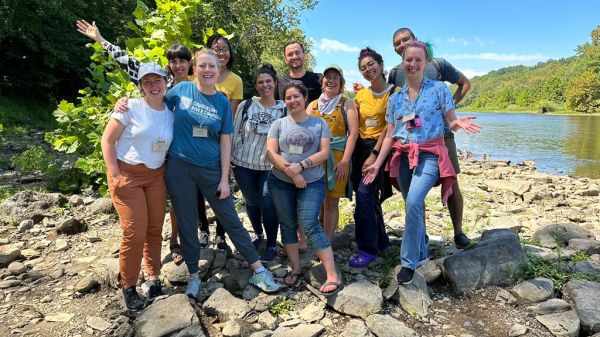
Each month, NAAEE shares narratives from the CEE-Change Fellows as they implement their community action projects and work to strengthen environmental education and civic engagement capabilities, all supporting the mission of cleaner air, land, and water. Join us on their journey! The Civics and Environmental Education (CEE) Change Fellowship is NAAEE’s newest initiative to support leadership and innovation in civics and environmental education in North America. This ee360+ program is a partnership between NAAEE, U.S. EPA, and the Cedar Tree Foundation.
If one word could summarize the NAAEE Civics and Environmental Education (CEE)-Change Fellowship, for me, it would be community. There are so many other words that can describe this experience—transformative, climate-driven, professional network, civic action—but this fellowship has been a journey of growth and shared passion among what started as 30 strangers, to 30 peers working towards a common goal. The feeling of belonging was immediate as we were welcomed into a network of like-minded people dedicated to environmental education, civic engagement and community support. For the coming year, we would be working with people from around the world, sharing resources and providing support, all while working towards a common goal: building a more sustainable future. Looking back nearly one year after, it is incredible to see how much each Fellow has progressed professionally and to realize that the same personal connections are still there. We not only worked hard together at the leadership training institute, but we explored the Potomac River, played ring toss games, ate pawpaws, stayed up late by the fire, and found big flat rocks.
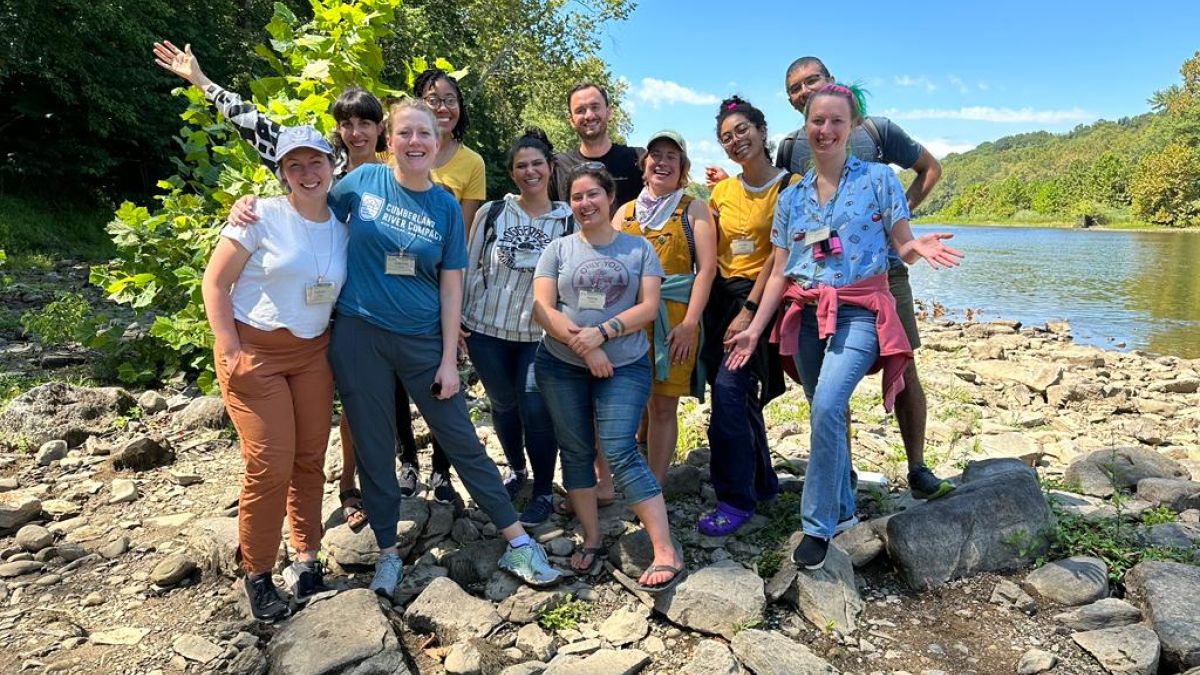
Group photo of the 2023 CEE-Change Fellows cohort on the Potomac River. Photo credit: Danny Woolums
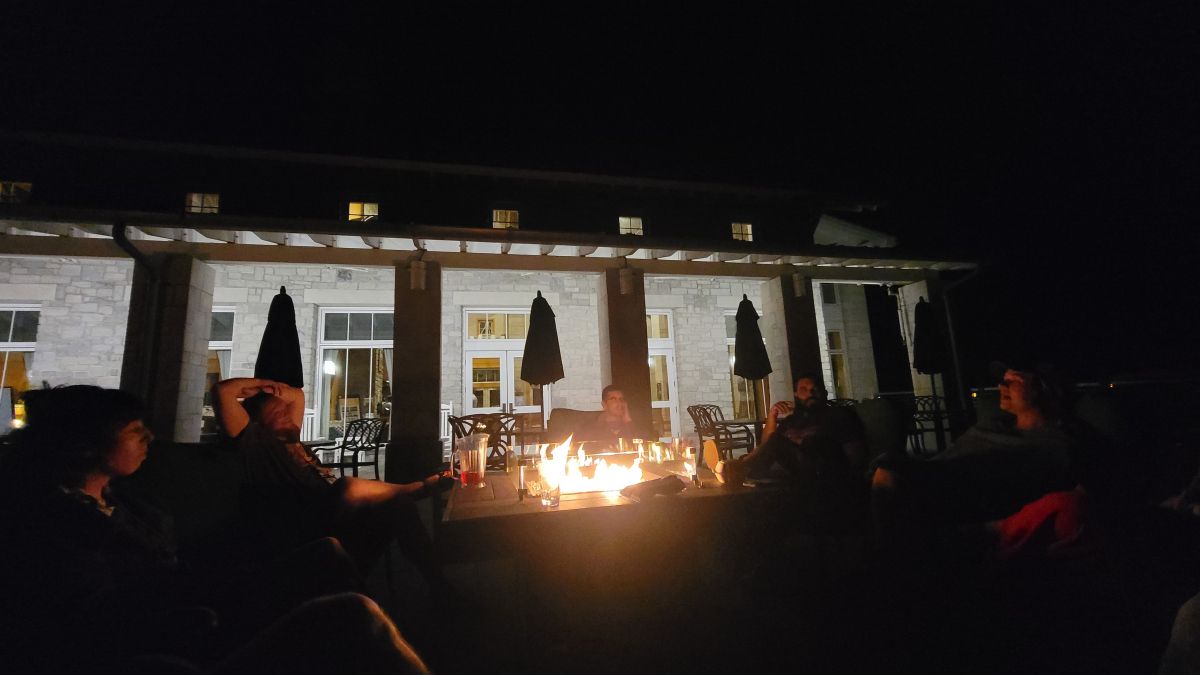
CEE-Change Fellows sitting by the fire on the first night of the CEE-Change Leadership Training Institute. Photo credit: Jeff Geist
As the Manager of Community and Professional Education at Duke Farms, I wanted this sense of community and belonging to be felt through my Community Action Project (CAP), “Building Climate Resilience through Community.” This sense of community was captured by partnering directly with the surrounding community at two distinct levels:
1. With students in surrounding public schools
2. Directly supporting municipal representatives
The partner communities are municipalities located within a 5-mile radius of Duke Farms along the Raritan River, New Jersey's largest river. This river, which also hosts a nesting pair of bald eagles that calls Duke Farms home, faces similar climate change impacts, including increased flooding from frequent storms, affecting both Duke Farms and these communities.
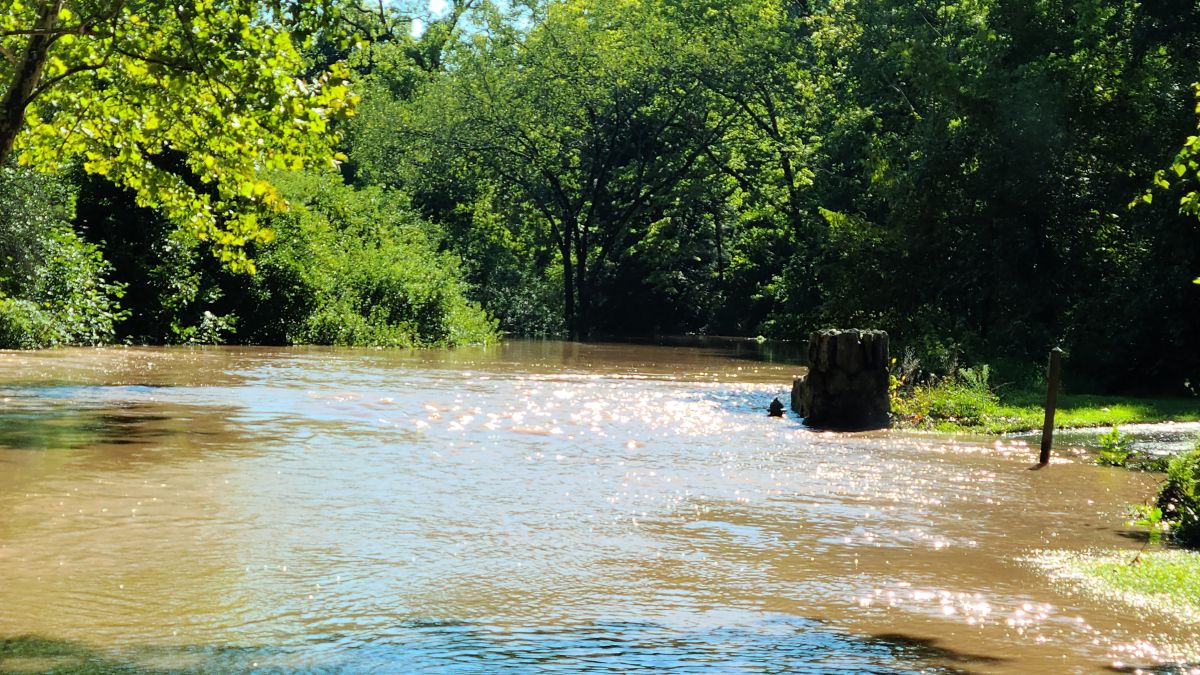
Flooding from Hurricane Ida in 2021 at Duke Farms. Photo credit: Frank Oades
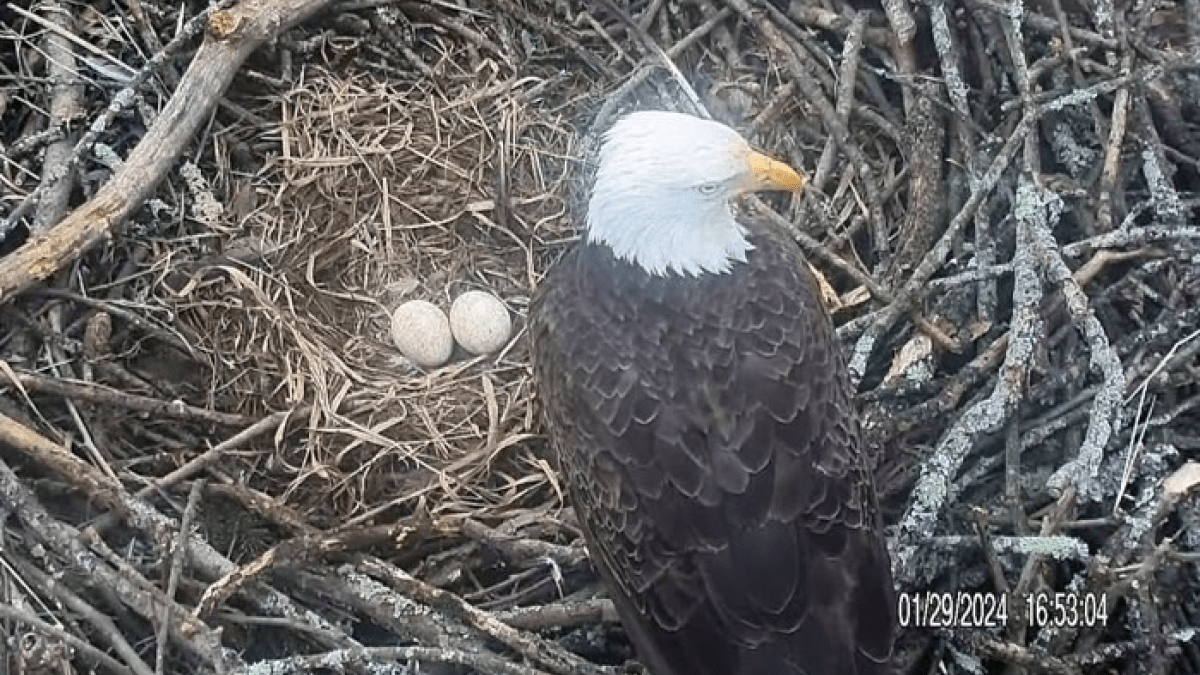
Bald Eagles depend on clean and healthy rivers, tall trees, and abundant wild fish. That’s what Duke Farms works hard to provide every day. We can watch the eagles on the Duke Farms Eagle Cam. Photo credit: Jeff Geist
Originally not even considered for this CAP, the student-focused component quickly became a major component to support the local communities. My role at Duke Farms changed halfway through the Fellowship to encompass school programs and it felt like a natural fit to work more deeply with the community. We launched seven student-centered school programs from September of 2023 to May of 2024, each designed to inspire and empower students to take an active role in their communities and the environment. The partner schools are currently two local districts, each under five miles from Duke Farms, with plans for expansion.
The story of the Manville High School Environmental Club is a testament to the potential impact of these programs. Initially, the club struggled to garner interest, but as the students learned more about their upcoming visit to Duke Farms, excitement began to build. The week before the field trip, the club saw a surge in participation, going from three students to twelve. Their visit to Duke Farms was more than just an educational trip; it was also rooted in civic action. The students received seeds from native plants collected at Duke Farms and learned propagation techniques from our staff. They returned to their school with these planted seeds and a plan to create a pollinator garden on their school campus, not only supporting biodiversity but also serving as a model for other schools, illustrating how educational programs can inspire a deep sense of environmental stewardship and civic responsibility. Moving forward, we are continuing our work with the surrounding school districts, anticipating at least 20 student-centered field trips to Duke Farms that are directly aligned with the existing curricula at the schools and intentionally designed to provide meaningful environmental education only a few miles from home.
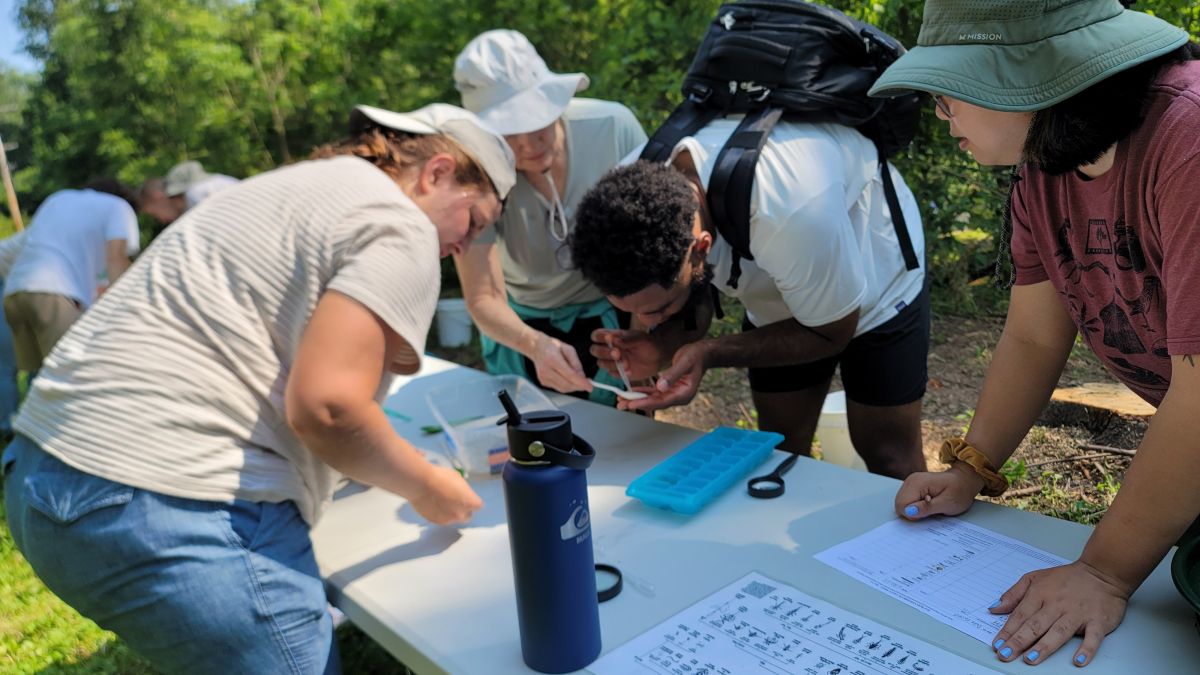
Stream survey continuing education program for adults at Duke Farms to understand water quality and macroinvertebrates. Photo credit: Jeff Geist
For the second component of this project, our work with municipal representatives, we recognized the importance of equipping local governments with the knowledge and skills necessary for environmental conservation and realistic carbon reduction. To this end, we conducted four continuing education programs for municipal employees, particularly those in the public works sector. First, we distributed a needs survey to assess the participant needs and potential for continuing education units (CEUs). Topics for the continuing education component included native trees and sustainable tree care practices, invasive plant identification and management techniques, examples of potential sustainable technology, and the human impacts of freshwater ecosystems. These classes tend to be smaller in size to increase the potential of collaboration and experience sharing.
A post-program survey was distributed to understand how participants will make changes in their work. We received feedback that participants felt “better equipped to identify emerging invasive plants, better able to support volunteers and advise municipal committees, and an increased need for further education.”
The successful collaboration between Duke Farms, local municipalities, and schools for this CAP has fostered a community that values sustainability and civic engagement. This collective effort reflects a promising future for environmental stewardship, one where each member, no matter their age, can play a role in creating a sustainable and resilient community.
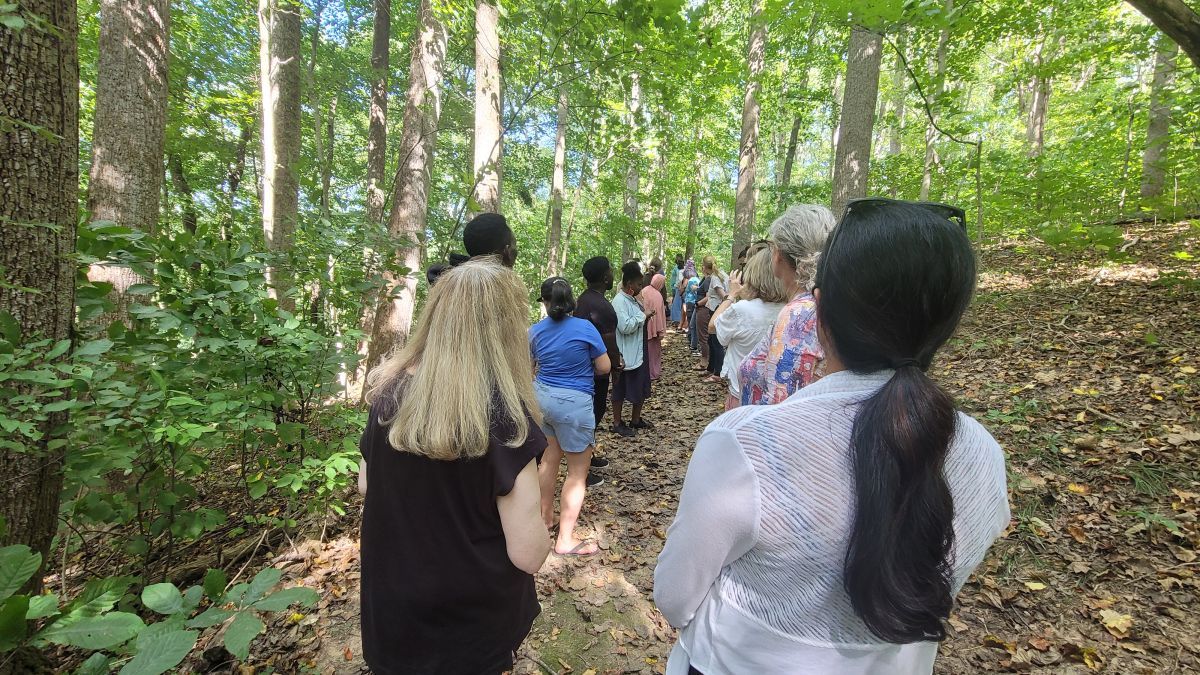
The CEE-Change Fellows and NAAEE team exploring the National Conservation Training Center in Virginia. Photo credit: Jeff Geist
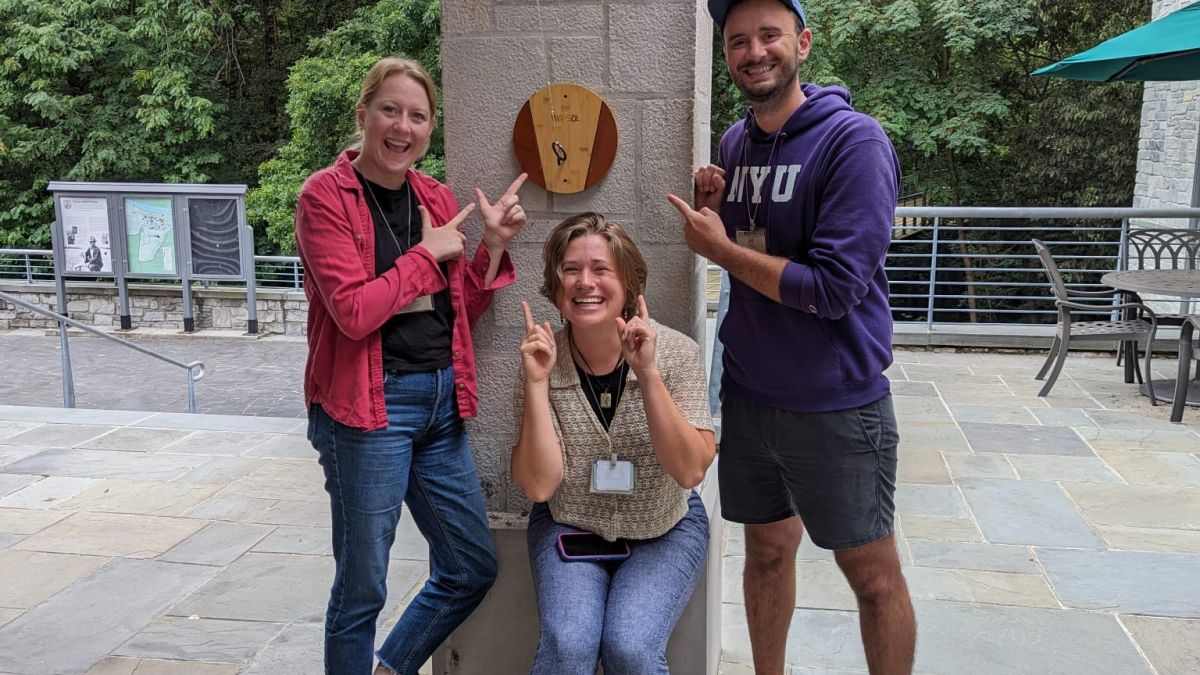
2023 CEE-Change Fellow Ring Toss Champions Catherine Price, Hannah Barg, and Jeff Geist. Photo credit: Elizabeth Hermann
Through the CEE-Change Fellowship, we have not only built a sense of community but also laid the groundwork for lasting environmental change through our Community Action Projects. The stories of transformation, the collaborative efforts and the shared vision for a sustainable future are all testaments to the power of community in driving environmental action.



